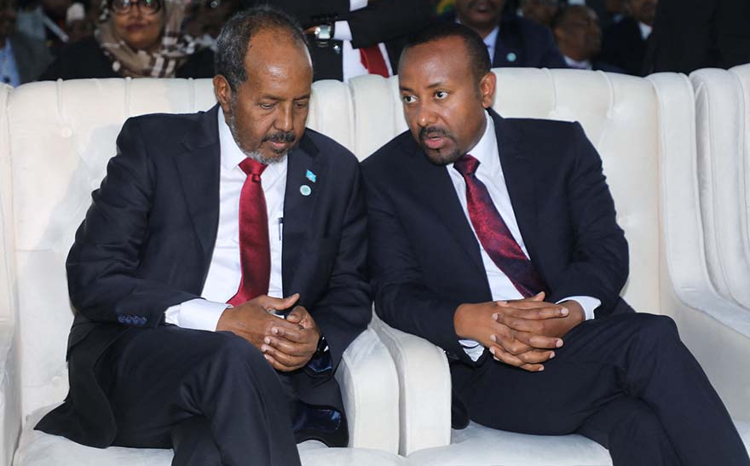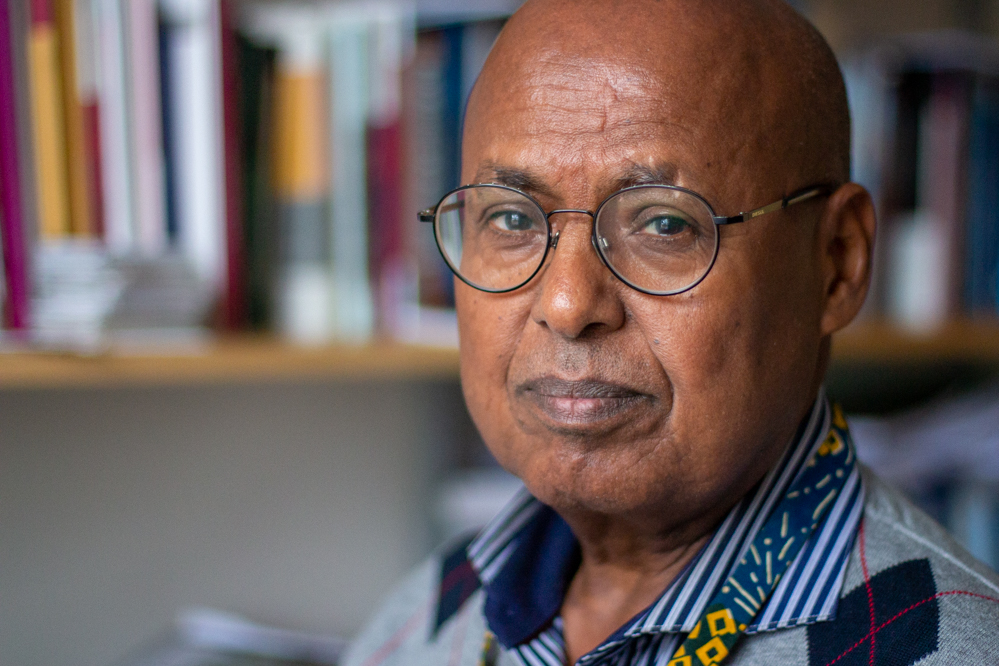Somali president has to walk a tightrope

Ahmed during his inauguration ceremony in Mogadishu, Somalia, on June 9. Photo: Hassan Ali ELMI / AFP)
By Johan Sävström
After winning elections in Somalia on 15 May, Hassan Sheik Mohamud is back in the presidential driver’s seat.
More or less the same challenges remain as when he left power in 2017.
“President Mohamud will need to perform a delicate balancing act trying to appease various actors”, Nordic Africa Institute (NAI) researcher and Horn of Africa expert Redie Bereketeab says.
His previous experience in the role will serve him well, because he knows the game and is well aware of the problems in the country, Bereketeab remarks. And there are several challenges that will be hard to resolve.
One is that Islamist group al-Shabaab has taken up arms more actively again. The group has the potential to be a serious nuisance for the president.
The best thing, according to Bereketeab, would be to sit down together and negotiate. However, in an attempt to reconnect with the US, Mohamud has already accepted having 500 American troops in Somalia.
“To have foreign soldiers on Somali soil is precisely what al-Shabaab does not want. This could mean that confrontation goes before discussion, leading to more violence, despite Mohamud having promised to bring peace and security to the country”, Bereketeab points out.
However, dealing with al-Shabaab is not Mohamud’s only headache. He has also inherited a strongly polarised political system.
Some regions in the country, in particular Jubaland and Puntland, oppose any attempt to strengthen the federal government because they fear it will diminish their regional power.
If Mohamud has to appease regional leaders, the state-building process in Somalia will be further undermined, according to Bereketeab.

He adds that this was one reason Farmajo – former president Mohamed Abdullahi Mohamed – lost the election. “The former president tried to centralise Somalia in order to build a functional state. The regional leaders, however, viewed him as doing the same thing as Prime Minister Ahmed Abiy in Ethiopia — taking power away from the regions”.
When Mohamud was president before, he had good relations with the ruling Tigray People’s Liberation Front (TPLF) in Ethiopia — and the party was quick to congratulate him on winning the election.
“Things have changed since then and I do not think he will jeopardise a closer relationship with the neighbouring superpower by taking the TPLF’s side in Ethiopia’s conflict”, Bereketeab remarks.
However, it is unclear if Mohamud will continue his predecessor’s role in trilateral negotiations with Ethiopia and Eritrea on greater regional integration.
“Because Western countries – and, in particular, the US – fear losing influence if that cooperation goes too far. Therefore, the president needs to balance and be careful about which allies he chooses”, Bereketeab concludes.
Nordic Africa Institute

